Leaders TalkX: WSIS towards the Summit of the Future/GDC and beyond
WSIS
Session 400
Leveraging WSIS to Implement Global Digital Governance Processes
In this session, we explore how the World Summit on the Information Society (WSIS) serves as a cornerstone for implementing effective global digital governance processes. As we navigate the complexities of the digital age, WSIS emerges as a pivotal platform for shaping the summit of the future and driving transformative change.
From fostering multi-stakeholder dialogues to promoting inclusive policies, WSIS plays a crucial role in facilitating collaboration and innovation on a global scale. This session delves into the key strategies and initiatives undertaken within the WSIS framework, highlighting their impact on advancing digital governance worldwide.
Join us as we leverage WSIS as a catalyst for implementing effective global digital governance processes and shaping the Summit of the future, GDC and beyond.
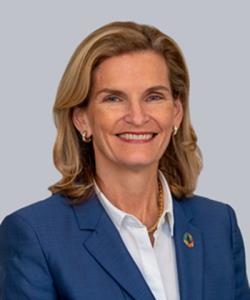
.jpg?maxwidth=250)
Didi Akinyelure is an Award-winning Journalist and an accomplished media and communications professional with extensive experience working in television, radio, text and digital for the BBC, CNBC Europe, CNBC Africa and Reuters. She is the Founder of REAP, a media production and communications strategy firm.
Didi Akinyelure won the prestigious BBC World News Komla Dumor Award. She also received the University of Nottingham's Special Excellence Alumni Laureate Award.
She has built an impressive career as a Moderator and Speaker, chairing high level panels at the United Nations in Geneva, the GECF Summit, Africa Oil Week, Africa Energy Week, Africa CEO Forum, Future Energy, London Business School, London School of Economics and Nottingham University, amongst others.
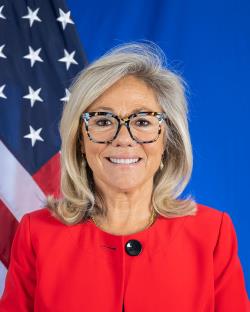
Eileen Donahoe serves as Special Envoy and Coordinator for Digital Freedom in the U.S. Department of State’s Bureau of Cyberspace and Digital Policy (CDP).
Previously, Dr. Donahoe served as the Executive Director of the Global Digital Policy Incubator at Stanford University, a multistakeholder collaboration hub focused on implications of digital technology for democracy and human rights. She served as the first US Ambassador to the United Nations Human Rights Council in Geneva during the Obama Administration. After leaving government, she was Director of Global Affairs at Human Rights Watch where she represented the organization worldwide on human rights foreign policy, with a special focus on internet governance and digital security.
Dr. Donahoe is a former member of the Board of Directors of the National Endowment for Democracy; the Board of Trustees of the Carnegie Endowment for International Peace; and the Board of Trustees of Dartmouth College. She also served on Microsoft’s Human Rights and Technology Advisory Board; the Independent Advisory Council of the Global Internet Forum to Counter Terrorism; the Board of Advisors for the Carnegie Council Artificial Intelligence and Equality Initiative; and the Freedom Online Coalition Advisory Network. Previously, she was a technology litigator at Fenwick & West in Silicon Valley. She holds an A.B. from Dartmouth, an M.T.S. from Harvard, a J.D. from Stanford Law School, an M.A. in East Asian Studies from Stanford, and a Ph.D. in Ethics and Social Theory from the GTU in the Cooperative Program with UC Berkeley. She is a member of the Council on Foreign Relations.

Pearse O’Donohue is the Director for Future Networks policy and research within the European Commission. As well as communications networks and computing technologies, his brief covers next generationInternet technologies and standards and Internet governance. In this capacity, for the last seven years Pearse has represented the European Commission in the IGF and at ICANN, at many gatherings of the multistakeholder community and contributing to the implementation of the Tunis Agenda from the EU perspective. Most recently, he represented the European Commission at NetMundial. Pearse is Chair of the EU High-Level Internet Governance Group. He previously served as Deputy Head of Cabinet of the then Vice-President of the Commission, Neelie Kroes, during which time he steered the first European Commission policy Communication on Internet Governance.
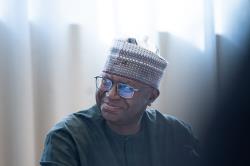
His Excellency Amb. Prof. Muhammadou M.O. Kah is the Ambassador of The Republic of the Gambia to the Swiss Confederation & Permanent Representative to the UN Office at Geneva, World Trade Organisation (WTO), and other international organizations at Geneva, Switzerland. He served as the past Chairman of the Africa Group of Ambassadors at Geneva (April 2021- Sept. 2021) and currently is the Vice President (Africa) for the UN Human Rights Council (2022 and 2023); Vice Chairman for UNCTAD’s Commission on Science and Technology Development and a member of the Advisory Board of the UNCTAD Trade and Development Bureau (TDB) (June 2021-July 2023). Amb. Prof. Kah served as one of two Ambassadors designated as Friends of the Chair of the World Intellectual Property Organization (WIPO) General Assembly and serves as one of the Vice Chairs of the General Assembly of the World Intellectual Property Organization (WIPO). He is a founding Board member of The International Digital Health and AI Research Collaborative (I-DAIR), Geneva, Switzerland; Council Member: DCAF-Geneva Center For Security sector Governance Foundation, Geneva, Switzerland.
Prior to his appointment at Geneva, Amb. Prof. Kah served as the Founding Chairman of Zenith Bank, The Gambia, Chairman of the Board of Directors, Africa Consulting & Trading Group (ACT), Dakar, Senegal; Board membership: Malabo Montpelier Panel; African Agriculture Technology Foundation; Africa Europe Foundation and ReEnergy Africa. He also served as Board Member for over 10 years at the African University of Science and Technology, Abuja, Nigeria; served as a Board member of the Nigerian Communications Commission’s (NCC) Digital Bridge Institute. Amb. Prof. Kah served as the first Gambian-born third Vice Chancellor (President/Rector) of The University of The Gambia (UTG) from 2009-2015.
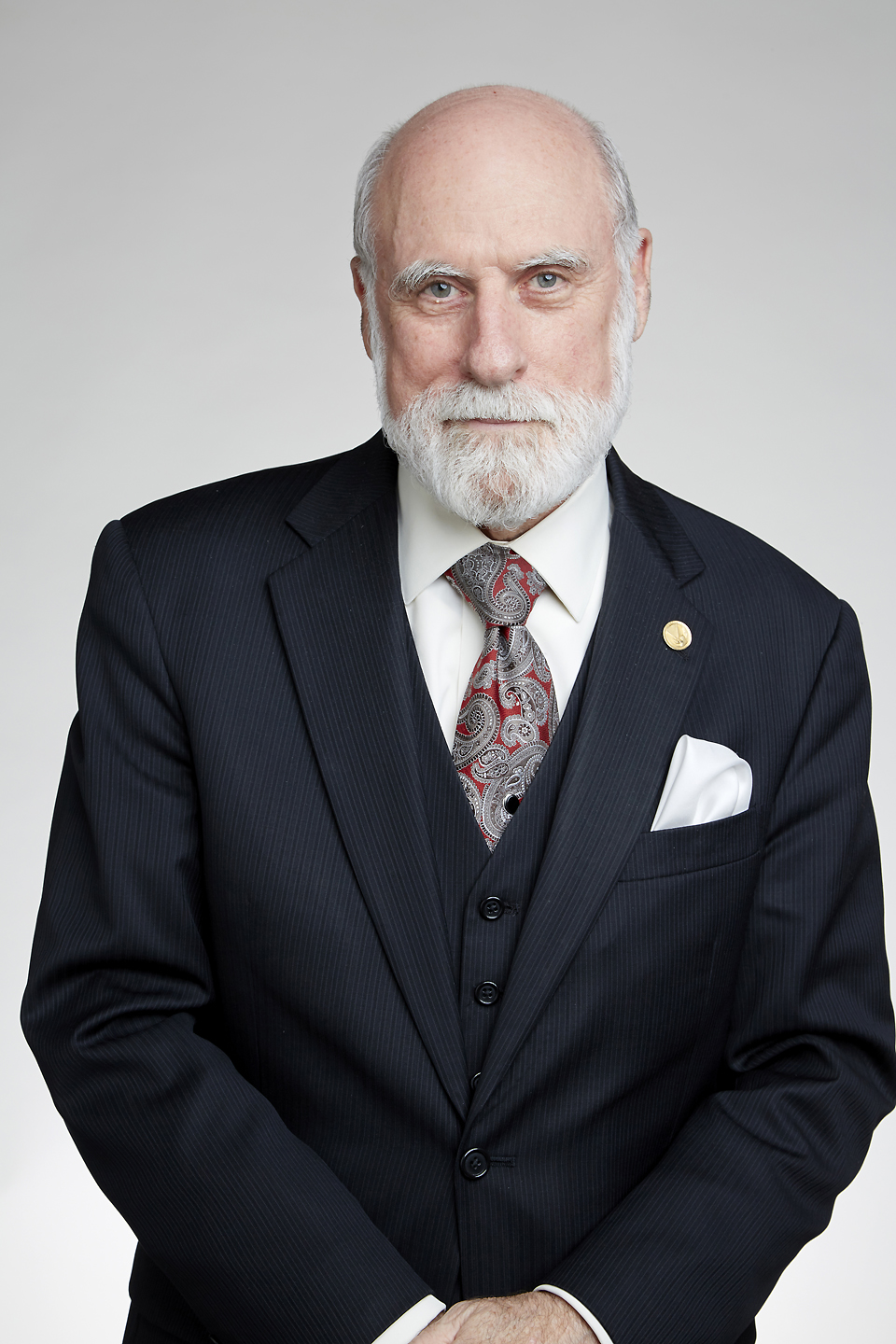.jpg?maxwidth=250)
At Google, Vint Cerf contributes to global policy development and continued spread of the Internet. Widely known as one of the "Fathers of the Internet," Cerf is the co-designer of the TCP/IP protocols and the architecture of the Internet. He has served in executive positions at the Internet Society, the Internet Corporation for Assigned Names and Numbers, the American Registry for Internet Numbers, MCI, the Corporation for National Research Initiatives and the Defense Advanced Research Projects Agency and on the faculty of Stanford University.
Vint Cerf sits on US National Science Board and is a Visiting Scientist at the Jet Propulsion Laboratory. Cerf is a Foreign Member of the Royal Society and Swedish Academy of Engineering, Fellow of the IEEE, ACM, American Association for the Advancement of Science, American Academy of Arts and Sciences, British Computer Society, Worshipful Companies of Information Technologists and Stationers and is a member of the National Academies of Engineering and Science.
Cerf is a recipient of numerous awards and commendations in connection with his work on the Internet, including the US Presidential Medal of Freedom, US National Medal of Technology, the Queen Elizabeth Prize for Engineering, the Prince of Asturias Award, the Japan Prize, the Charles Stark Draper award, the ACM Turing Award, the Legion d’Honneur and 29 honorary degrees.
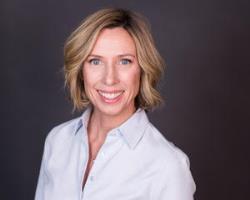
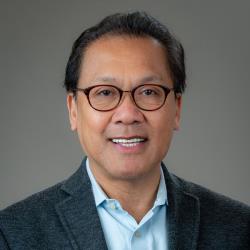
The Rev. Dr. Liberato C. Bautista is a civil society leader whose professional life has been dedicated to working with faith-based, ecumenical, and non-governmental organizations worldwide, spanning the last four decades. Dr. Bautista serves as President of CoNGO—The Conference of Non-Governmental Organizations in Consultative Relationship with the United Nations—an international non-governmental organization with general consultative status with the United Nations Economic and Social Council (ECOSOC). Bautista is an ordained minister of The United Methodist Church and, since 1996, served as the Assistant General Secretary for United Nations and International Affairs for the church’s General Board of Church and Society. Bautista serves as an NGO representative to the United Nations worldwide for both CoNGO and UMC-GBCS. He was previously the Chair of the Council of Organizations of the United Nations Association of the USA (COO UNA-USA) and the Committee of Religious NGOs at the UN (CRNGO).
Bautista studied political science, history, and international studies at the University of the Philippines, as well as religion and social and political ethics at Drew University (USA). He is a Fellow of the World Academy of Art and Science (WAAS). Bautista has traveled to more than 80 countries worldwide for personal and professional trips, attending major United Nations conferences and ecumenical, interreligious, civil society, and academic meetings. Bautista has lectured and taught in university, college, and theological seminary settings and has edited books and published articles and monographs on varied subjects, including international affairs, NGO and civil society dynamics, social and political ethics, theology and religion, ecumenism and religious liberty, human rights and human dignity, indigeneity, and indigenous peoples, global and forced migration, and peace, justice, and social transformation.
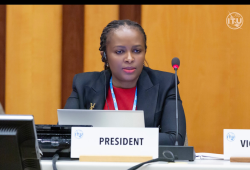
Cynthia Lesufi is the Minister Counsellor representing the South African Mission to the UN Office and other International Organizations. She is a law graduate with a master’s in ICT policy and regulation.
Cynthia is the chairperson of the ITU Council Working Group WSIS & SDGs. She is a seasoned policy and regulatory expert with over 15 years of experience in the Information and Communications Technology (ICT) sector.
Ms Lesufi has had the privilege of being a key member of national delegations to supra-national conferences of the Southern African Development Community (SADC), African Telecommunications Union (ATU), United Nations (UN), and International Telecommunications Union (ITU). Her active participation and leadership in the preparations of contribution documents, such as South African position papers for developing a global policy framework on emerging technologies, highlight her proactive involvement in shaping global ICT policies. She has also been a panellist for the WISIS Forum 22 session on ICT access and Affordability in Developing Countries for Digital Inclusion, further demonstrating her commitment to digital inclusion.
-
 C1. The role of governments and all stakeholders in the promotion of ICTs for development
C1. The role of governments and all stakeholders in the promotion of ICTs for development
-
 C2. Information and communication infrastructure
C2. Information and communication infrastructure
-
 C3. Access to information and knowledge
C3. Access to information and knowledge
-
 C4. Capacity building
C4. Capacity building
-
 C5. Building confidence and security in use of ICTs
C5. Building confidence and security in use of ICTs
-
 C6. Enabling environment
C6. Enabling environment
-
 C7. ICT applications: benefits in all aspects of life — E-government
C7. ICT applications: benefits in all aspects of life — E-government
-
 C7. ICT applications: benefits in all aspects of life — E-business
C7. ICT applications: benefits in all aspects of life — E-business
-
 C7. ICT applications: benefits in all aspects of life — E-learning
C7. ICT applications: benefits in all aspects of life — E-learning
-
 C7. ICT applications: benefits in all aspects of life — E-health
C7. ICT applications: benefits in all aspects of life — E-health
-
 C7. ICT applications: benefits in all aspects of life — E-employment
C7. ICT applications: benefits in all aspects of life — E-employment
-
 C7. ICT applications: benefits in all aspects of life — E-environment
C7. ICT applications: benefits in all aspects of life — E-environment
-
 C7. ICT applications: benefits in all aspects of life — E-agriculture
C7. ICT applications: benefits in all aspects of life — E-agriculture
-
 C7. ICT applications: benefits in all aspects of life — E-science
C7. ICT applications: benefits in all aspects of life — E-science
-
 C8. Cultural diversity and identity, linguistic diversity and local content
C8. Cultural diversity and identity, linguistic diversity and local content
-
 C9. Media
C9. Media
-
 C10. Ethical dimensions of the Information Society
C10. Ethical dimensions of the Information Society
-
 C11. International and regional cooperation
C11. International and regional cooperation
-
 Goal 1: End poverty in all its forms everywhere
Goal 1: End poverty in all its forms everywhere
-
 Goal 2: End hunger, achieve food security and improved nutrition and promote sustainable agriculture
Goal 2: End hunger, achieve food security and improved nutrition and promote sustainable agriculture
-
 Goal 3: Ensure healthy lives and promote well-being for all
Goal 3: Ensure healthy lives and promote well-being for all
-
 Goal 4: Ensure inclusive and equitable quality education and promote lifelong learning opportunities for all
Goal 4: Ensure inclusive and equitable quality education and promote lifelong learning opportunities for all
-
 Goal 5: Achieve gender equality and empower all women and girls
Goal 5: Achieve gender equality and empower all women and girls
-
 Goal 6: Ensure access to water and sanitation for all
Goal 6: Ensure access to water and sanitation for all
-
 Goal 7: Ensure access to affordable, reliable, sustainable and modern energy for all
Goal 7: Ensure access to affordable, reliable, sustainable and modern energy for all
-
 Goal 8: Promote inclusive and sustainable economic growth, employment and decent work for all
Goal 8: Promote inclusive and sustainable economic growth, employment and decent work for all
-
 Goal 9: Build resilient infrastructure, promote sustainable industrialization and foster innovation
Goal 9: Build resilient infrastructure, promote sustainable industrialization and foster innovation
-
 Goal 10: Reduce inequality within and among countries
Goal 10: Reduce inequality within and among countries
-
 Goal 11: Make cities inclusive, safe, resilient and sustainable
Goal 11: Make cities inclusive, safe, resilient and sustainable
-
 Goal 12: Ensure sustainable consumption and production patterns
Goal 12: Ensure sustainable consumption and production patterns
-
 Goal 13: Take urgent action to combat climate change and its impacts
Goal 13: Take urgent action to combat climate change and its impacts
-
 Goal 14: Conserve and sustainably use the oceans, seas and marine resources
Goal 14: Conserve and sustainably use the oceans, seas and marine resources
-
 Goal 15: Sustainably manage forests, combat desertification, halt and reverse land degradation, halt biodiversity loss
Goal 15: Sustainably manage forests, combat desertification, halt and reverse land degradation, halt biodiversity loss
-
 Goal 16: Promote just, peaceful and inclusive societies
Goal 16: Promote just, peaceful and inclusive societies
-
 Goal 17: Revitalize the global partnership for sustainable development
Goal 17: Revitalize the global partnership for sustainable development